Evil Dead's History And Legacy: 2013's Evil Dead Is One Of The Most Twisted, Gruesome Movies Of The 21st Century, And It's Remarkable
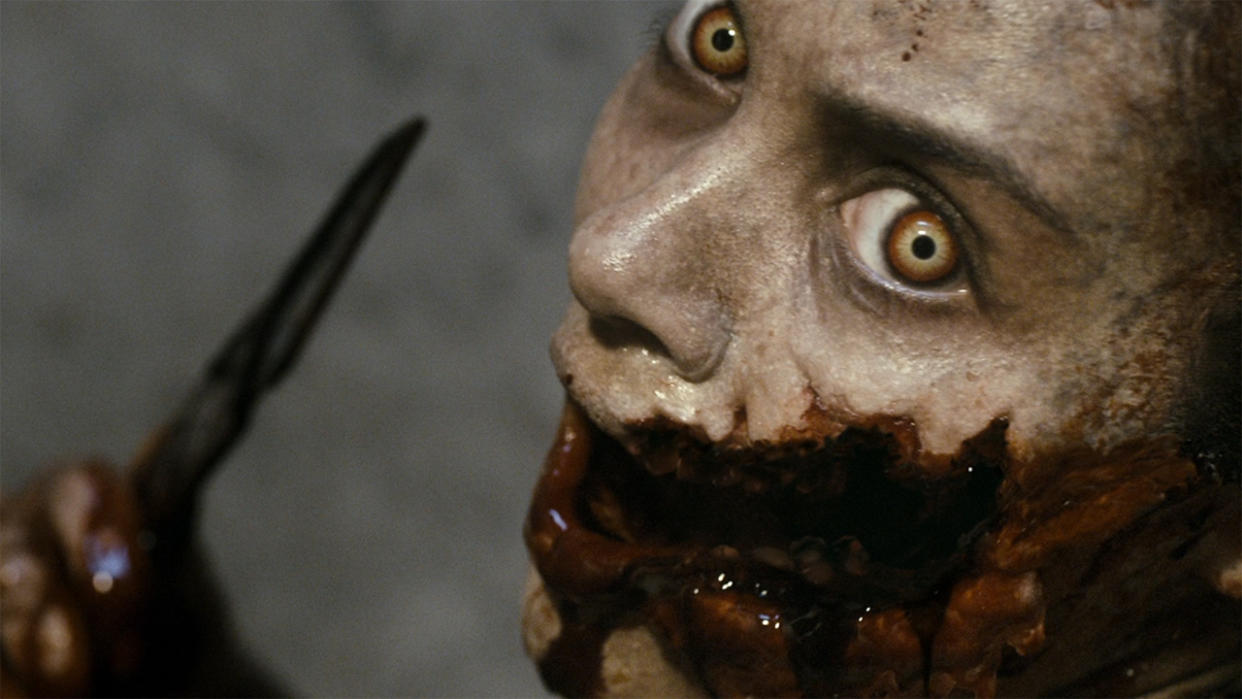
Following the release of Army of Darkness in 1992, the Evil Dead franchise was dormant for a long period of time. In addition to the trilogy-capper not performing well at the box office, the three masterminds behind the cult movies – Sam Raimi, Bruce Campbell, and Rob Tapert – all saw their careers flourish during the last decade of the 20th century working on non-Evil Dead related projects. Fans, however, never gave up hope on the idea of seeing another horrific adventure with Deadites and the Necronomicon.
For years there was a lot of chatter about a specific Army Of Darkness sequel that never ended up going anywhere – but an idea that was able to take root was the idea of a remake.
In the Blu-ray featurette “Evil Dead: The Reboot,” Rob Tapert explains that the movie didn’t have the easiest time getting off the ground initially as a result of disagreement between the franchise creators. The producer explains that Raimi was supportive of the approach because he felt it would be an exciting way for a young filmmaker to cut their teeth, but Campbell wasn’t convinced that the sequel-hungry fanbase would appreciate it. Said Tapert,
One of the keys to getting Evil Dead remade was to get the three partners, Sam, Bruce, and myself, to all go, ‘Yes, we want to do it.’ Sam was the biggest proponent of it, and Bruce was the one who really didn’t want to see it get remade… Sam always thought, ‘Well, it’s a great vehicle for a young filmmaker to tackle and say, ‘Hey, that other movie’s crap, I can do a much better job than that. Just give me a camera and some money.’’ And Bruce, on the other hand, went, ‘Well, the fans will hate it.’
What ended up changing everything was the discovery of Fede álvarez. In 2009, the Uruguayan filmmaker went viral online with the release of Panic Attack – a short film which depicts giant robots destroying a city. It’s a work that looks tremendous despite the fact that it was made with very little resources – not unlike the original The Evil Dead.
Bruce Campbell notes in “Evil Dead: The Reboot” that Ghost House Pictures – the production company founded by Robert Tapert and Sam Raimi – first got into talks with álvarez out of interest in adapting Panic Attack as a feature:
Fede Alvarez met Sam Raimi in a series of meetings that he was having because he went crazy on the internet when a little short he did called Panic Attack went viral. But this guy, out of nowhere, through his cleverness, made this little special-effects-heavy short of robots attacking a city, and it’s only, I don’t know, a couple of minutes, four or five minutes, and the effects are really inventive; they look like they’re top notch.
Like thousands upon thousands of other projects, the idea of a Panic Attack feature ended up stalling and not moving forward – but that didn’t kill Fede álvarez’s Hollywood dreams. When that door closed, he recognized who he was collaborating with and took his shot. In Campbell’s words,
Sam was actually talking about developing that into a feature film, but then that got bogged down in classic Hollywood fashion, into development hell, and Fede pitched the concept of an Evil Dead because he was a fan.
The word “remake” had been tossed around, but that wasn’t what Fede álvarez and his writing partner Rodo Sayagues were interested in making. Instead of copying the playbook of The Evil Dead, their approach would take the iconography and lore of the original trilogy and use them to create something original. The Necronomicon, the Deadites, and the cabin in the woods would remain, but a fresh group of characters would enjoy a fresh set of horrors.
Sam Raimi announced the remake in January 2011, Bruce Campbell gave his word during an April 2011 Reddit AMA that it would “kick ass,” and the wheels started speeding up after the project got a distribution deal from FilmDistrict in November 2011. Production on the film began in the spring of 2012 in and around Auckland, New Zealand – and while it was a rough shoot full of physical stunts, muck, make-up, and special effects, everyone involved was prepped on what they were getting into thanks to a pre-shoot notice sent to all of the actors by Campbell:
I sent an email to all the actors we finally cast. ‘Look, here's what’s gonna be coming your way. You won’t make a movie like this probably for the rest of your career. You’re gonna go back and work on other movies after this and you’re gonna go, ‘This is nothing.’
Wrapping in July 2012 and arriving in theaters in April 2013, Fede álvarez’s Evil Dead ultimately did prove Bruce Campbell right in that the development of the project caused a lot of uproar and anxiety among fans in the run up to its release – but the conversation totally changed when everyone had the chance to see it. This is because, to everyone’s surprise, the film is a remarkable and beautifully horrific piece of work that fits perfectly into Evil Dead’s History And Legacy.
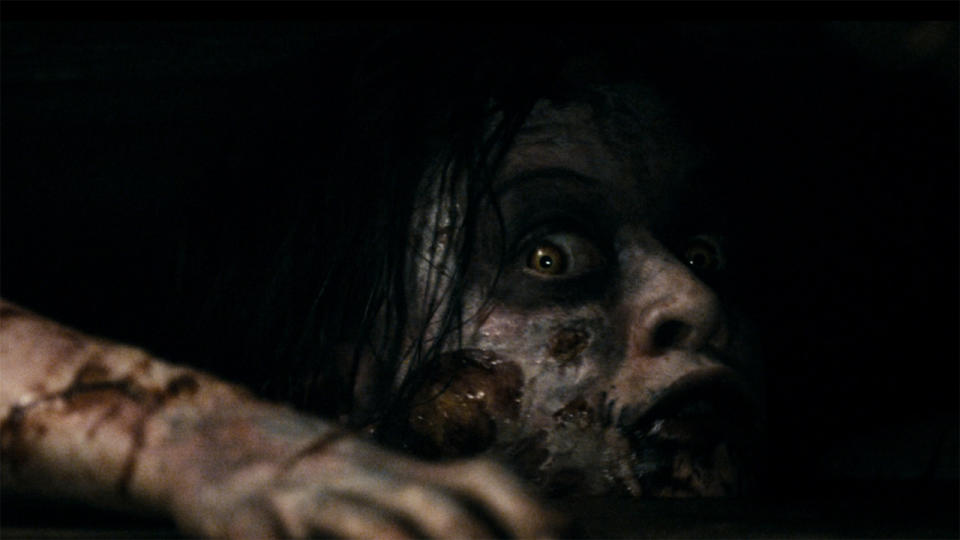
Why Evil Dead Is The Fourth Best Movie The Evil Dead Franchise
My first opportunity seeing Fede álvarez’s Evil Dead was admittedly in optimal conditions: the world premiere at the 2013 SXSW Film Festival. The entirety of the packed audience was hyped and primed for the extreme gore fest that had been promoted by the marketing, and the crowd was elated when the movie effectively delivered on those promises. It was the perfect environment in which to watch the movie – but thanks to several rewatch opportunities since then, I know that it didn’t wholly color my opinion of it. Whether you watch it alongside hundreds of other franchise fans at a special screening or alone in your living room on a random Tuesday night, Evil Dead delivers a phenomenal and unforgettable experience that gets under the skin of even the most desensitized genre obsessives.
The aim with the movie was to try and match the reputation of the original as the “ultimate experience in grueling terror,” and it’s in particular thanks to its matching structure that it is able to succeed. The first act is used efficiently to set up all of the main characters and the nature of their trip (in the process developing an interesting cinematic metaphor about drug addiction), but once Lou Taylor Pucci’s Eric reads from the Necronomicon and the horror gets going, the film is relentless. You’re barely able to catch your breath after Jane Levy’s Mia gets raped by trees in the forest before she is scalding herself with boiling water from the shower, and it’s really not long at all after that when Jessica Lucas’ Olivia starts carving her face off with a shard of mirror and Elizabeth Blackmore’s Natalie is chopping off her left arm with an electric carving knife. (Even just reflecting on these moments sends a chill through me.)
The levels of spectacular gruesomeness are off the charts, and that’s due both to the clever ideas that are executed and some unforgettable special effects. What Fede álvarez and his crew were able to accomplish practically in the movie is magical and beautiful, and while all of that work had the side-effect of putting the cast through hell, it can be said that the quality of the finished film makes it all worth it.
So why is it deemed the fourth best of the four Evil Dead movies (prior to the release of Evil Dead Rise)? It’s really a simple case of one title having to be ranked last in accordance with the nature of ranking. Being only a decade old, it gets dinged for not having the incredible pop culture clout and legacy of The Evil Dead, Evil Dead II and Army Of Darkness – but time very well may end up changing perspective because it’s fanbase will surely only grow as more people discover the franchise on the whole and respect how amazing it is.
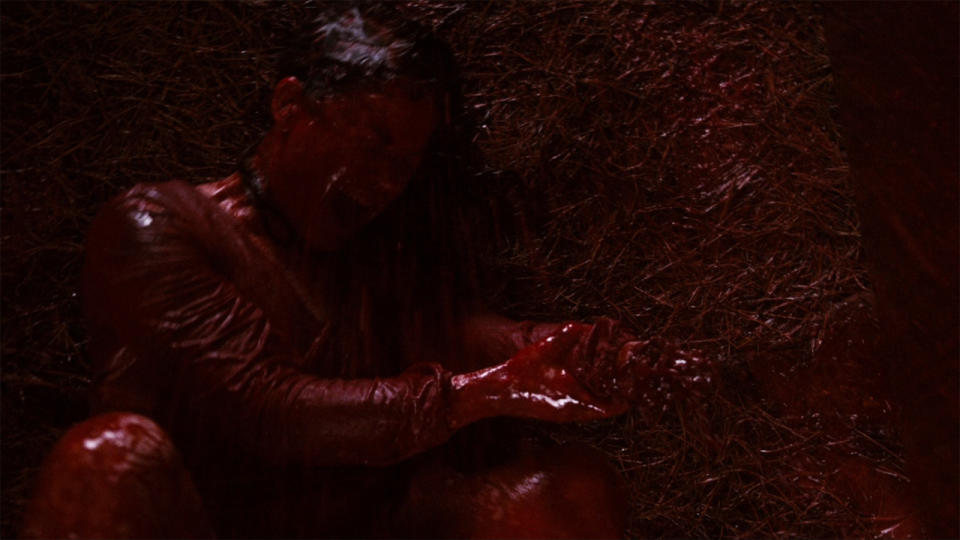
How Evil Dead Fits Into The History Of Horror
As I noted in my Horror History And Legacy column about Wes Craven’s Scream 4, the 2000s was a tough time for scary movie fans. The industry became remake obsessed, and a lot of resources went into reviving pre-existing IP instead of investing in new content. It was in this atmosphere that the reboot of Evil Dead started developing, but in retrospect, it ended up being a title released during a time of transition for horror franchises.
It was studios recognizing that remakes were being rejected by audiences with easy access to the original movies that eventually led to the current wave of legacyquels – and while the 2013 Evil Dead doesn’t quite fit all the parameters of that trend (it doesn’t feature any OG characters, for starters), it’s not just a rehash of stuff audiences have already seen and is theoretically part of the same canon. Furthermore, it arguably paved the way for the Evil Dead’s version of a legacyquel with the Starz series Ash vs. Evil Dead (the subject of next week’s feature).
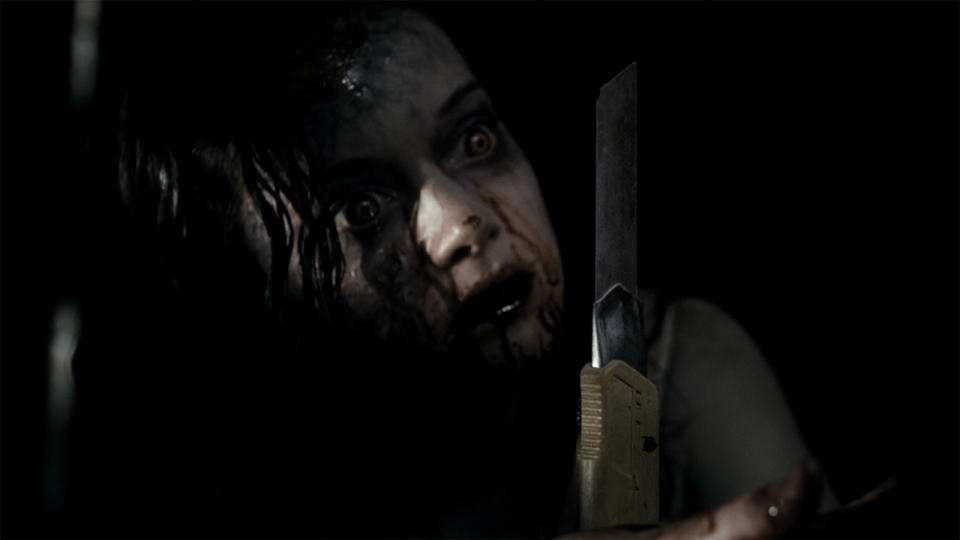
How Evil Dead Changes Its Franchise’s Canon And Future
You’ll note that I said that Evil Dead is “theoretically” part of the franchise canon. This is because as far as that arena is concerned, the film isn’t so much about creating direct links to the original trilogy as it is about not specifically distancing itself (it was actually Sam Raimi’s request that it not interfere with any potential development of an Evil Dead 4/Army Of Darkness sequel). That in mind, and understanding that a direct sequel hasn’t been made, it can’t specifically be said at this point how the events that unfold in the film impact the Evil Dead canon – but it certainly has changed larger perception of the franchise.
Prior to the release of 2013’s Evil Dead, audiences had a relatively narrow view of what constituted an Evil Dead movie, but that was something that the reboot changed – as evidenced by the forthcoming arrival of Evil Dead Rise. Specifically, the film showed that it’s not the presence of Bruce Campbell’s Ash Williams that makes an “official” title, as Campbell himself explains in “Evil Dead: The Reboot”:
That was a big issue with a lot of fans. Well, if Ash isn’t in it, it’s not an Evil Dead movie. It’s like, yeah, it is. It’s just with a different generation… It’s just a new generation of Evil Dead. That’s all it really is. We don’t want the same anything. I don’t want some guy trying to imitate my overacting performance! You know? Why bother? Leave the guy alone. So all the other actors now in the movie get to create their own thing. And Jane Levy, by the end of this, she’s taking this movie by the shoulders and she’s screaming at it in the face.
Fans are still hoping that we will someday get to see Jane Levy reprise her role as Mia, but for now there is a great deal of excitement about Lily Sullivan’s Beth in Evil Dead Rise.
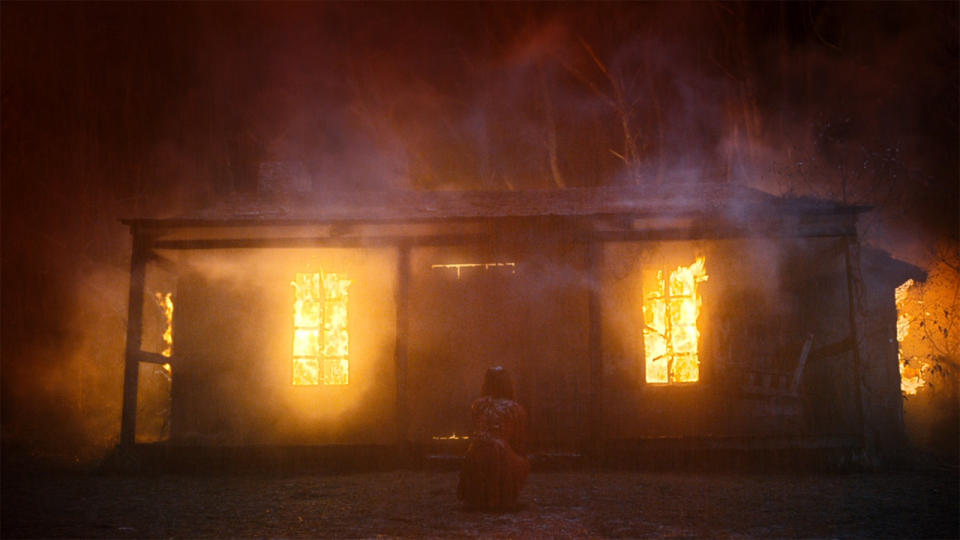
Is Evil Dead A Good Horror Movie In General?
One of the advantages that Fede álvarez’s Evil Dead has as a reboot is that it’s a film that can be enjoyed in multiple capacities. If you’re already an Evil Dead fan, it can be enjoyed as an insane extension of the brilliant franchise – and if it’s the first time you’ve ever seen an Evil Dead movie, it can wholly be enjoyed on its own (and it will probably inspire you to check out all of the other titles).
As far as gore and extreme body horror is concerned without a drip of humor, there are few films in the last 20 years that have done it better than Evil Dead. The action is disgusting and compelling, the characters are engaging, the themes are surprisingly strong, and the special effects are genius.
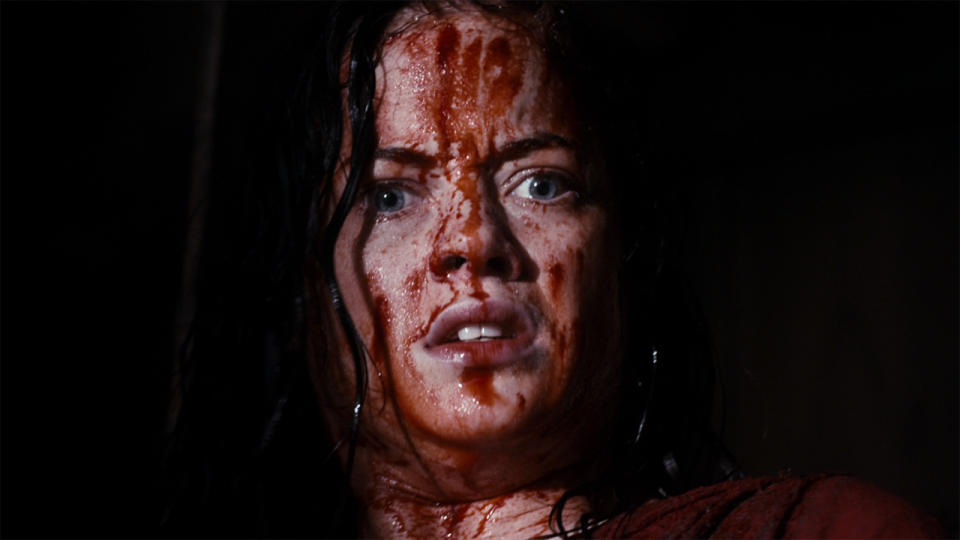
How To Watch Evil Dead
While wanna-be viewers won’t find access to Fede álvarez’s Evil Dead via any subscription services, the internet and physical media provide plenty of options. Digitally, you can rent or purchase the film from outlets including Prime Video, Apple TV, Vudu, and Google Play. For the best possible viewing experience, however, you’re going to want to pick up the Collector’s Edition 4K UHD, which was released by Scream Factory last fall.
With Evil Dead Rise set to be released on April 21, I’ll be wrapping up Evil Dead’s History And Legacy next week with an in-depth look at all three seasons of Ash vs. Evil Dead. Look for it in the CinemaBlend Television section next Thursday.
